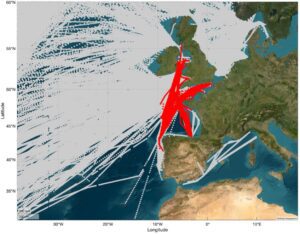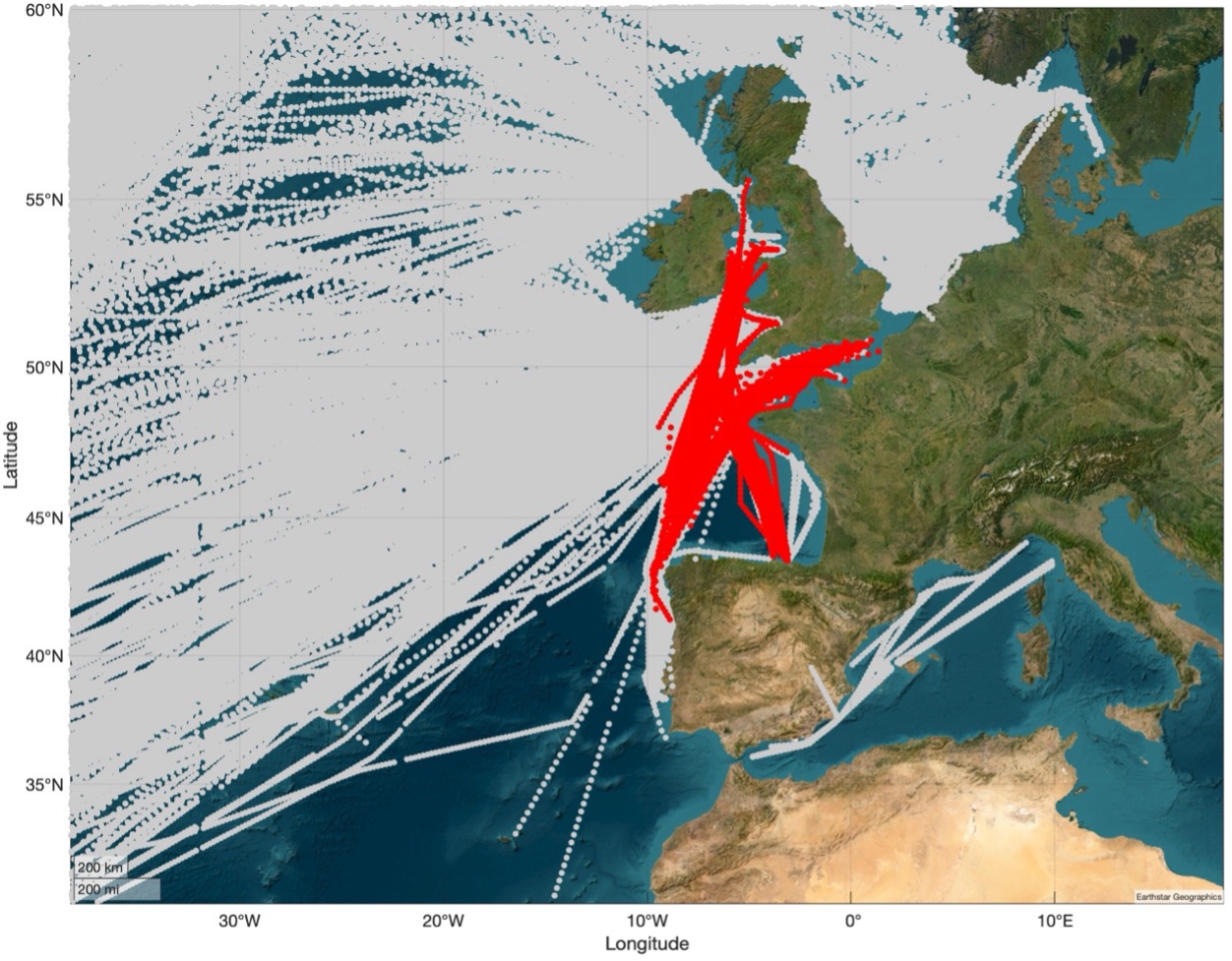Since April 2024 WEC Lines has been assisting the Marine Biological Association with its high impact scientific research on plankton, the Continuous Plankton Recorder (CPR) Survey, supporting our goals to creating a more sustainable future.
The CPR Survey, the Guinness World Records holder of the longest running, most geographically extensive marine ecological survey, is a monitoring program that uses commercial vessels to collect samples of phytoplankton and zooplankton along their regular routes of passage.
How do we contribute?
The WEC Corneille is one of the commercial vessels collecting plankton samples. Our crew has been placing the plankton recorder overboard on each trip between Bilbao and Liverpool for plankton monitoring for five months already. Although this vessel will be allocated to another route, we will continue to support this initiative on the same route with another vessel.
Why is it important to collect samples of phytoplankton and zooplankton?
Plankton, which includes tiny plants (phytoplankton) and animals (zooplankton), quickly reacts to changes in the ocean. Since plankton is at the base of the marine food chain, any changes in their numbers or types can affect fish, seabirds, and marine mammals. By studying plankton, we can learn a lot about the overall health of our oceans and how they are changing. This information helps us understand shifts in fish populations and make better decisions for sustainable fishing. It also provides clues about bigger environmental changes, like climate change and ocean health. Ultimately, healthy oceans support our own well-being, providing food, biodiversity, and a stable environment.
Through this consistent programme any changes to the plankton composition, density, and other factors are quickly identified. The CPR survey provides invaluable environmental monitoring data from the region and has already contributed to over 100 research publications!
Don’t believe us?
Attached you can find a “hot of the press” Plankton Manifesto as published by the UN last week. It highlights the importance of plankton to the balance of life on our planet and the need for consistent quality data collection and processing.
We are proud to be contributing to a healthy ocean.

Figure 1. Location of historical CPR samples shown in red.








